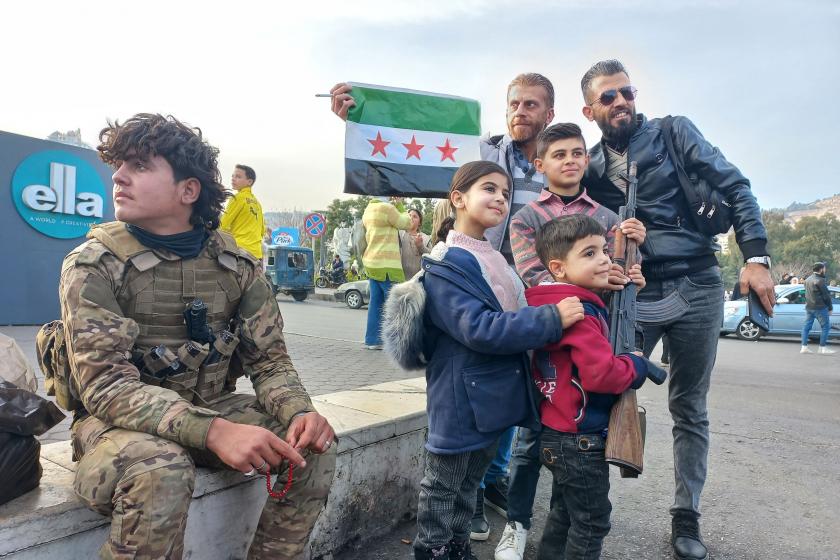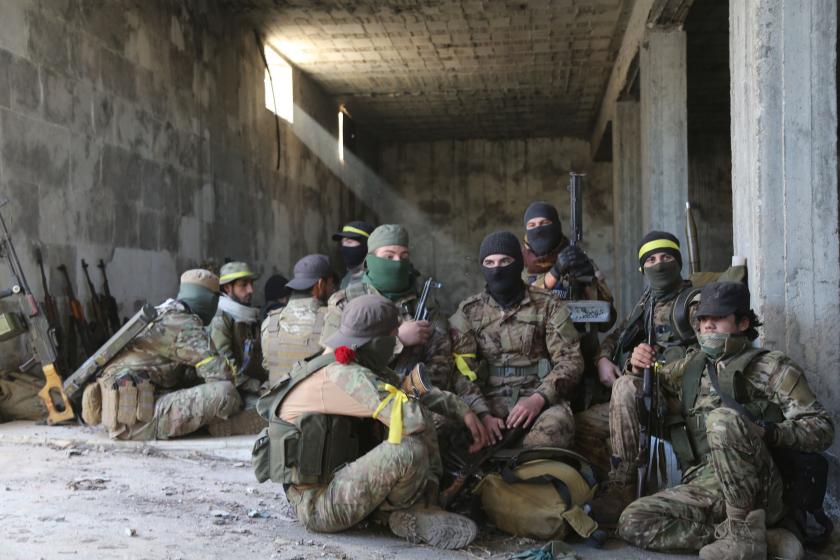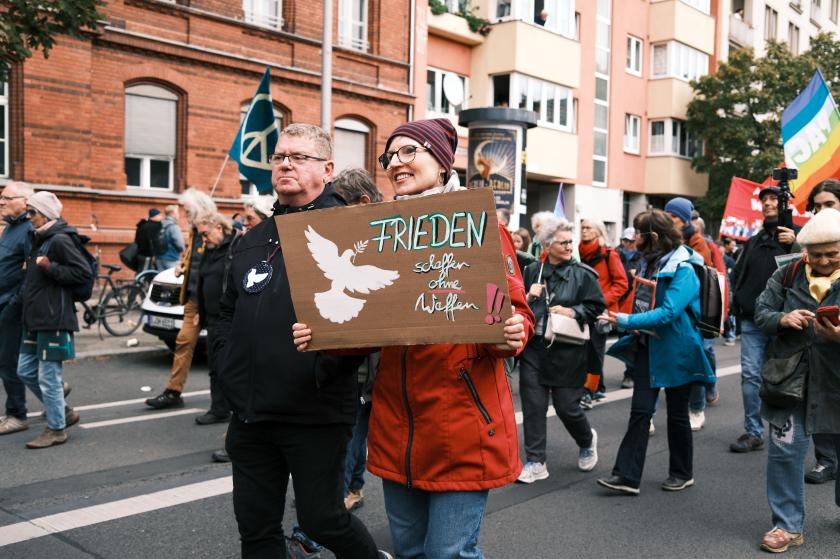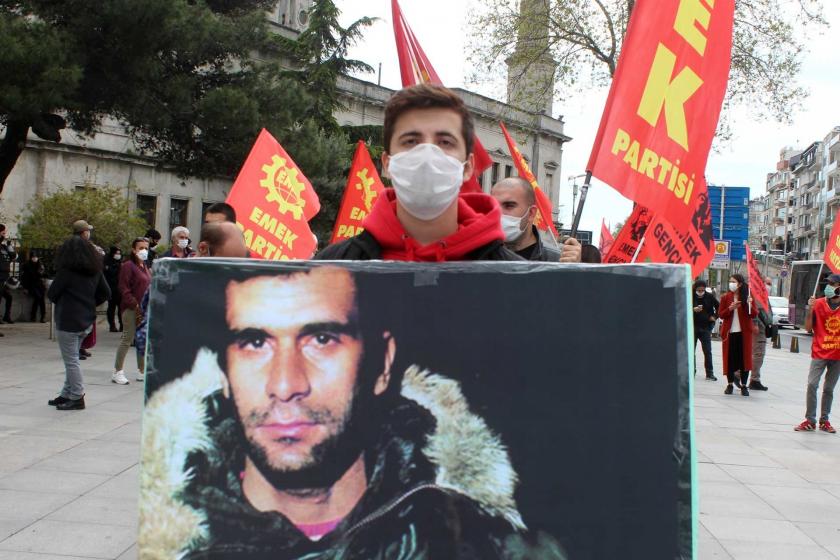Following the message from PKK Leader Abdullah Öcalan, having had two meetings with his lawyers on İmralı, that the hunger strikes and death fasts had achieved their aim, Leyla Güven and thousands of detainees in prison ended their actions. It is beyond dispute that these actions that have lasted 200 days and started with Leyla Güven before spreading to many jails with the participation of thousands of detainees had exerted ever greater pressure on the ruling party. However, it is also clearly not the hunger strikes alone that account for the process whereby Öcalan has re-assumed a position in which he can comment on events in the country and region (Middle East) as a serious political actor. A sound assessment of events demands attention to other factors that influenced the process and, moreover, saying this is not to detract from the success of the hunger strikes.
It must not be forgotten that since the day on which Öcalan surrendered to Turkey in a political operation and was put in İmralı jail, he has always been treated by the state/ruling party as a “political hostage.” That is, the forces representing the state/ruling party have only made it possible for Öcalan to speak his mind as a political actor when they have wanted him to enter the fray or under conditions in which they have been powerless to prevent this.
And so, we can say that the opening ajar of the İmralı door today is not unconnected to the troubles plaguing the Erdoğan administration along with certain regional calculations.
First, the “one-man alliance” clearly underwent a considerable loss of power in the 31 March local elections. The Istanbul election, annulled in the absence of any available legal pretext, is a forced move aimed at stemming this loss of power. In view of the key role that was/will be played by HDP-voting Kurds who voted for İmamoğlu and also conservative Kurds who abstained from voting out of distaste for the alliance that Erdoğan has formed with Bahçeli, a policy of softening has become necessary for the ruling party in place of the exhortation “off to Kurdistan with you.” For, the hunger strikes that were verging on death (and had moreover led to eight people ending their lives) and the violence directed by law enforcement agencies at detainees’ mothers in this process was increasingly robbing the one-man alliance of prestige among Kurds. At this very point, it must be remembered that the pronouncement Öcalan could meet with his lawyers emanated from Bahçeli.
So, will this move have an effect on HDP voters?
There is seemingly no way that this move will exert a notable effect on HDP voters. In fact, the ruling party has its sights set more on the conservative Kurds who made their dissatisfaction towards it felt by abstaining on 31 March, rather than HDP voters.
Second, it must be recalled that in his statements he made following the meetings with lawyers on both 2 May and 22 May, Öcalan laid the stress on democratic politics, a peaceful solution to the Kurdish problem and, in connection with this, a democratic constitutional solution based on Syrian territorial integrity. Another important point worthy of attention is the stating by Öcalan that he had issued this call for “all the forces of democracy, political structures across Turkey’s spectrum and the state” and his call should “not get bogged down in day-to-day, narrow political agendas.”
By means of this message that he brought into sharper focus at the second meeting, Öcalan has both replied to claims that he was engaged in dealings with the ruling party over the Istanbul elections, or they were going on, and has issued a call from the Kurdish armed movement to opposition circles of all kinds and to the state to take positions in a new democratic-peaceful process.
Third, it is a fact now perceived by many circles that developments in Syria and the position of the Kurds in Syria will be decisive as to the progression of the Kurdish problem which has become excessively intertwined in regional developments and Öcalan’s role. In fact, the particular stress laid by Öcalan on Syria in both messages and his announcement that he is ready to play a role in the evolution of the process in Syria into a democratic, constitutional solution also bears the most concrete testament that the door to a new process has been/will be opened ajar from Syria.
The question that will certainly come to mind is, “Well, why is the Erdoğan administration leaving the door open to a process in Syria in which Öcalan may play a role?”
With a view to answering this question, there is a need to recall – as I pointed out in the article “The ‘World Leader’ Caught Between Imperialist Blocs” - the way the Erdoğan administration is caught between the US and Russian in Syria and the dealings being conducted with the US on this basis – and, most recently, the US Special Representative for Syria Jeffrey said that negotiations were continuing with Turkey over the “safe zone” in the north of Syria.
The US, which needs Turkey with reference to its strategy of besieging Iran but does not want to lose the Kurds in Syria, either, is trying to implement a plan that will partially restrict the Kurds but will also court the Erdoğan administration’s consent for the Kurds’ new position. To enable such a plan to be implemented the need arises for the administration in Turkey to address itself somehow or other to the Kurds. And it is hardly surprising that the most intelligent option for the Erdoğan administration when it comes to doing so is Öcalan, who exerts a decisive influence over Kurdish politics.
In short, if today there can be no speaking of a new talks-negotiations process, the Erdoğan administration has been forced to open ajar the door to İmralı thanks to its constrained position in Syria.
A further final point needs stressing. The opening ajar the door to İmralı by the Erdoğan administration, which is constrained domestically and abroad, as a move aimed at self-salvation, is not a move that can, as certain narrow-minded nationalist-neo-nationalist circles imagine, be averted by opposing it. For, it must be realized that the racist-nationalist ranting that rang out during the processes in which the democratic-peaceful solution of the Kurdish problem and negotiations with Öcalan came/were brought onto the agenda above all facilitated the task of the Erdoğan administration.
What must be done at this point is for a position to be developed that will prevent Erdoğan reactionariness from exploiting expectations over a peaceful solution of the Kurdish problem and will bring about the opening of a road towards a democratic solution in the true sense. It must be stressed in this regard that the remarks made by CHP leader Kılıçdaroğlu, having come together with certain Kurdish opinion leaders, on Kurdish education and equal citizenship are important because it will purely and simply only be possible to enable a new process to start and this process to evolve into a democratic solution if it is pulled away from being a process that is left at the administration’s discretion.
As such, let me finally note that, yes, the door has been left ajar. However, what will determine whether the door that has been left ajar will open and what it will open onto is the course of the struggle between the one-man regime that is engaging in dealings with imperialists for its own survival and the forces of democracy and peace in the country and region.
(Translated by Tim Drayton)



